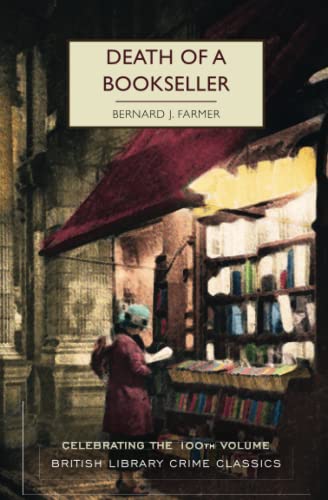Sergeant Wigan is heading home after his late evening shift when he meets a cheerful and inebriated man. Michael Fisk is celebrating his acquisition of a first edition copy of Keats' Endymion, owned and inscribed by the author, an excedingly rare and valuable find for a runner and collector in the antiquarian book trade. Rather than arresting him, Wigan escorts Fisk home, eventually striking up a friendship with the otherwise lonely man and starting to learn about the business of collecting from him. When Fisk is subsequently found murdered in his study some time later, the Keats book missing, Wigan is called to assist the D.I. assigned to the case because of his knowledge of the surprisingly cutthroat business of rare books.
Wigan is a kindly and honest policeman with a strong moral streak and he knows when he doesn't know something, having no trouble relying on others to help him when his own knowledge is lacking. When another book runner, an unpleasant, argumentative man defended by no one who knows him, is arrested for the murder and sentenced to hang, Wigan is troubled because he is certain the man didn't do it, convicted instead on circumstantial evidence that the D.I. forced around him instead of thoroughly examining all avenues. Sure of this impending miscarriage of justice, Wigan investigates on his own time, jeopardizing his police career. He meets and talks to many colorful characters in the antiquarian trade, from humble barrow boys selling books out of wheelbarrows, to runners who scour secondhand stores, estate sales, and such for undiscovered prizes, to buyers working for wealthy clients, the wealthy collectors themselves, and respectable, or seemingly respectable, book shop owners. As the time when the convicted man will be hanged grows closer, Wigan and the tradesmen who are helping him seem to be hitting nothing but dead ends.
The first half of the mystery is quite slow and drawn out while the second half takes on a much tenser and desperate pace. The writing is simple, direct, and accessible; it feels sturdy and workmanlike. Wigan is not really an investigator for much of the story but is the person around whom all of the information coalesces. The ultimate solution to the crime was a bit out of left field and the confession offered up was simply strange, compelled by almost nothing. There is a thread of occultism dotting the story, ultimately important to the denouement, but awkwardly inserted. Where Farmer really shines is in the depiction of police procedures of the 50s and the truthful depiction of the surprisingly less than genteel and scholarly antiquarian book trade and the eccentric characters who practiced it. The mystery itself was simply the hanger on which to hang Farmer's observations of the chicanery surrounding the buying and selling of old books. Over all it was enjoyable enough, if not a thrilling exampe of the genre.






No comments:
Post a Comment
I have had to disable the anonymous comment option to cut down on the spam and I apologize to those of you for whom this makes commenting a chore. I hope you'll still opt to leave me your thoughts. I love to hear what you think, especially so I know I'm not just whistling into the wind here at my computer.